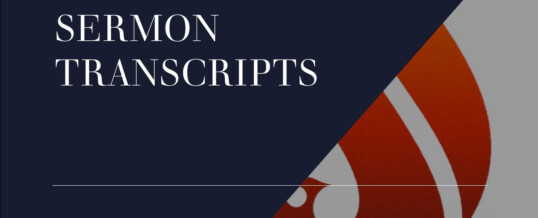
“Love Links Us To One Another and Others” – 1 Samuel 2:18-20, 26, Luke 2:41-52
The Christ Candle is lit. The messiah of hope, peace, joy and love has entered the world. Humanity has been offered grace. The fourth century bishop of Hippo, Augustine, writes this about the significance of the birth of Jesus as God’s most tangible expression of grace, the grace available to humanity,
Our Lord came down from life to suffer death;
the Bread came down, to hunger;
the Way came down, on the way to weariness;
the Fount came down, to thirst.
—Augustine, Sermon 78[1]
He so loved us that, for our sake,
He was made man in time,
although through him all times were made.
He was made man, who made man.
He was created of a mother whom he created.
He was carried by hands that he formed.
He cried in the manger in wordless infancy, he the Word,
without whom all human eloquence is mute.
—Augustine, Sermon 188, 2[2]
It is true. Only Christianity places “grace” at the theological core of its belief system. That is the good news of Christmas and we share it again on this First Sunday after Christmas.
Samuel’s life is an act of grace itself. His mother’s womb was barren until God answered Hannah’s prayer. Samuel was integral in bringing to and exiting from the throne Saul as King and raising up and anointing David as King. Samuel prepared the way for Jesus. We receive from Samuel and Jesus a vision for being God’s loving family, a community of mutual, self-giving, and sacrificial love.
In the Gospel of Luke, we learn that Jesus grew in wisdom, stature, and love. Jesus dispensed grace, positioning himself in relationship to and with others in a profoundly loving way. Melissa Browning writes, “Yes, injustice abounds, but God’s justice always wins in the end. No system of governance has ever lived up to the justice that God expects. Our hope comes in knowing that it is within our power to do the work of justice and mercy here and now, even when our rulers are scoundrels.”[3] God’s plan for saving the world through love…loving God and loving others…was and is a methodology of shared leadership. [4] Shared leadership empowers others to know they are loved by God and can love others. Yet, shared leadership is hindered by ego, fear of failure, control, inefficiency, pride/insecurity, and self-sufficiency.[5]
As people of Jesus we need to bear with one another. Grace dispensed in difficult times requires accountability, support, and encouragement. Practicing grace is not a solo endeavor. We are to do this with one another. We need to support one another in this walk of forgiveness as members of the body of Christ. As followers of Jesus wearing “love” is our defining garment.
Peter Wehner, an opinion writer for The New York Times, writes,
If you find yourself in the company of people whose hearts have been captured by grace, count yourself lucky. They love us despite our messy lives, stay connected to us through our struggles, always holding out the hope of redemption. When relationships are broken…it’s grace that causes people not to give up, to extend the invitation to reconnect, to work through misunderstandings with sensitivity and transparency.[6]
Loving God and loving others brings salvation. This is good news.
When you respond to God’s calling, it is good news for the world. You then represent what a human can look and behave like as envisioned in God’s desire. Increase in stature, wisdom, and the favor of God. Just like road works around our city seem to occur all the time, our lives undergo ongoing construction. Your story is constantly being written. Participate with Jesus in the ongoing construction of your life continually shoring up your life of purpose and service. Amen.
This sermon was preached on the First Sunday after Christmas, 29 December 2024
by the Rev. Dr. Steven M. Marsh in the Great Room and Sanctuary at
Grace Presbyterian Church in Wichita, Kansas
Copyright Ó 2024
Steven M. Marsh
All rights reserved.
[1]Taken from the Preaching Today website in the lectionary section of illustrations for
December 29, 2024.
[2]Ibid.
[3]Melissa Browning in Joel B. Green, Thomas G. Long, Luke A. Powery and Cynthia L. Rigby, editors, Connections, Year C, Volume 1 (Louisville, Kentucky: Westminster John Knox Press, 2018), 115.
[4]The exegesis in the two paragraphs above was influenced by Glen Bell, Melissa Browning, Joel Marcus Lemon, John C. Holbert, Rodger Y. Nishioka, Ronald J. Allen, and Michael L. Lindvall in Joel B. Green, Thomas G. Long, Luke A. Powery and Cynthia L. Rigby, editors, Connections, Year C, Volume 1, 112-114, 114-115, 116-118, 119-120, 121-122, 123-125, and 125-126.
[5]Ideas on shared leadership are gleaned from Sandra Maria Van Opstal The Next Worship: Glorifying God in a Diverse World (Downers Grove, Illinois: InterVarsity Press, 2016), 92-93.
[6]Peter Wehner, The New York Times, December 23, 2018.
ShareJAN
